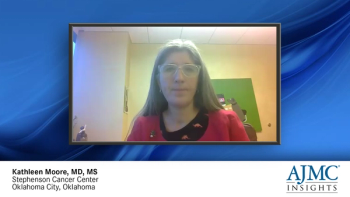
A panelist discusses how National Comprehensive Cancer Network (NCCN) guidelines have influenced molecular testing in ovarian cancer, highlighting the importance of biomarkers like BRCA genes for treatment decisions, prognostic information, and family prevention strategies.





